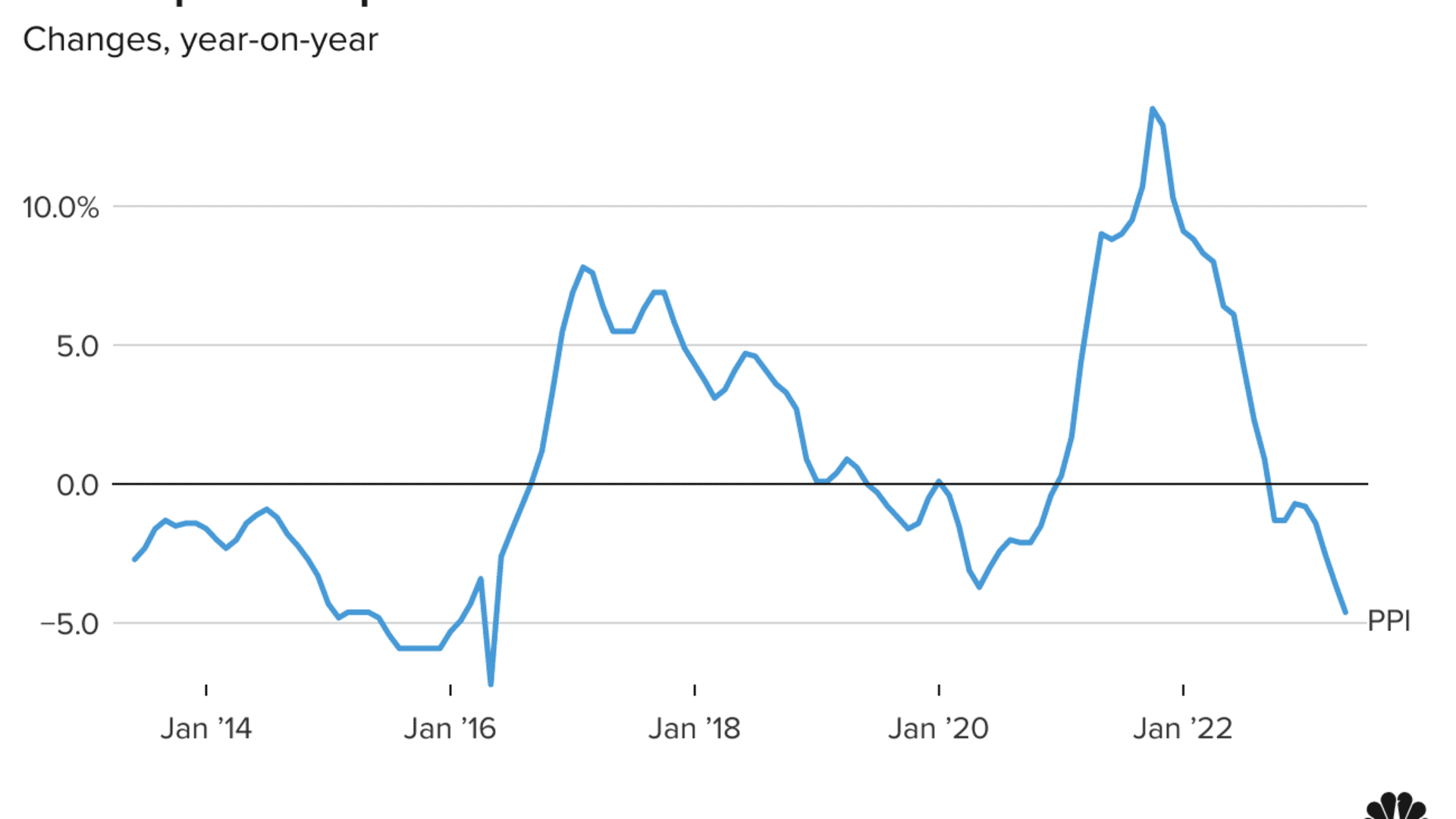
- Economists surveyed by Reuters expected China's consumer price index to rise 0.3% year-on-year after marking a two-year low of 0.1% in April. Month-on-month, economists predicted a 0.1% decline.
- Recent economic data pointed to a disappointing recovery from China's strict Covid lockdown measures as the economy struggles with softening demand and falling exports.
Inflation in China stayed at low levels in May, as the economy struggles to recover even after its strict Covid lockdown measures lifted late last year.
Producer price index in May fell 4.6%, marking the steepest year-on-year drop in seven years, when producer prices saw a year-on-year drop of 7.2% in May 2016.
The latest reading fell further from a decline of 3.6% in April and lower than expectations to see a decline of 4.3% in May, according to Reuters poll of economists.
Get Boston local news, weather forecasts, lifestyle and entertainment stories to your inbox. Sign up for NBC Boston’s newsletters.

China's consumer price index in May rose 0.2% compared to a year ago, government data showed. Economists surveyed by Reuters expected a 0.3% rise. CPI in April was at a two-year low of 0.1%.
Month-on-month, prices fell 0.2% — economists predicted a 0.1% decline.
Money Report
China's low consumer inflation and deflation in its producer prices come in contrast to relatively high inflation in major economies around the world. Global central banks, including the U.S. Federal Reserve, have been fighting to bring down rising prices for more than a year. Just this week, Canada and Australia defied expectations and raised interest rates.
After the release , the onshore Chinese yuan weakened 0.06% after to 7.1154 against the U.S. dollar. The CSI 300 Index, which tracks the largest listed companies in Shanghai and Shenzhen, shed 0.2% and last traded slightly above the flatline.
The latest data is among a batch of economic indicators that point to a cooling economy in China.
China's National Bureau of Statistics attributed the broad softness to a general weakness seen in global commodity prices and overall demand.
The mining and raw material industries led declines in producer prices, while food, tobacco and alcohol prices led consumer price gains, the data showed.
Pinpoint Asset Management's Zhiwei Zhang said, "The risk of deflation is still weighing on the economy. Recent economic indicators send consistent signals that the economy is cooling."
Zhang expects the Chinese government's next fiscal policy review to take place after its second quarter gross domestic product is released next month.
Nearing bottom
Despite the softness in the latest price indexes, one China market watcher seemed to be holding on to an optimistic "long China" call.
"We feel that both from an economic point of view, from a stimulus point of view, [and] from a geopolitical point of view, we can't get much worse than where we currently are," Andrew Maynard of China Renaissance said on CNBC's "Street Signs Asia."
From an investing perspective, China is "starting to see at least some return to some level of stability," he said, adding that stocks on mainland China remain "relatively attractive."
"When we talk to investors, you know, 'would you be long or short China at this juncture?' — and then the honest answer to that would be: 'I prefer to be long,'" Maynard said.
"There's definitely going to be some hurdles to leap over ... but at the end of the day, the Chinese economy, in our point of view, will start to grind out these successes."






